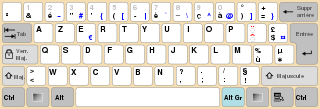Related Research Articles

The General Confederation of Labour is a national trade union center, founded in 1895 in the city of Limoges. It is the first of the five major French confederations of trade unions.

Ahmed Sékou Touré was a Guinean political leader and African statesman who became the first president of Guinea, serving from 1958 until his death in 1984. Touré was among the primary Guinean nationalists involved in gaining independence of the country from France. He would later die in the United States in 1984.

Boubacar Diallo Telli was a Guinean diplomat and politician. He helped found the Organisation of African Unity (OAU) and was the second secretary-general of the OAU between 1964 and 1972. After serving as Minister of Justice in Guinea for four years he was executed by starvation by the regime of Ahmed Sékou Touré at Camp Boiro in 1977.
The National Confederation of Guinean Workers is a national trade union center in Guinea. The CNTG is the largest trade union centre in Guinea, and is affiliated with the International Trade Union Confederation.
Rabiatou Serah Diallo was a Guinean trade unionist. She was the secretary-general of the National Confederation of Guinean Workers.
The Charter of Amiens was adopted at the 9th Congress of the Confédération générale du travail (CGT) French trade-union, which took place in Amiens in October 1906. Its main proposal was the separation between the union movement and the political parties. The CGT was then dominated by anarcho-syndicalists who preferred the constitution of an alternate system through the elaboration of workers' unions rather than moderate reforms through the electoral path. The motion for the Charter was drafted by Victor Griffuelhes, general secretary of the CGT, and Émile Pouget. The Charter was adopted by 830 participants, eight having voted "no" and one abstained, and marked the victory of the current of revolutionary syndicalism in the CGT of the time.

Saifoulaye Diallo was a Guinean politician, lawmaker and cabinet member.
Trade unionism is a powerful force in the politics, economy, and culture of Senegal, and was one of the earliest trades union movements to form in Francophone West Africa.
Camp Boiro or Camp Mamadou Boiro (1960–1984) is a defunct Guinean concentration camp within Conakry city. During the regime of President Ahmed Sékou Touré, thousands of political opponents were imprisoned at the camp. It has been estimated that almost 5,000 people were executed or died from torture or starvation at the camp. According to other estimates, the number of victims was ten times higher: 50,000.

Confédération générale du travail de Guadeloupe is a trade union centre in Guadeloupe. CGTG was founded in 1962, as the Guadeloupean federation of the French Confédération générale du travail became an independent centre. CGTG is particularly strong amongst banana plantation workers and in the Basse-Terre area.
Confédération générale du travail du Burkina is a revolutionary national trade union centre in Burkina Faso. Bassolma Bazié the general secretary of CGT-B.
The Confédération générale des travailleurs africains was a trade union centre in French West Africa, in existence from 1956 to 1957.

The Republic of Guinea is a multilingual country, with over 40 languages spoken. The official language is French, which was inherited from colonial rule.
Jean-Paul Hétu was a Quebec trade unionist.

Siradiou Diallo, a Fulani, was a Guinean journalist and politician of the opposition party Union for Progress and Renewal. He was a candidate during the 1993 Guinean presidential election where he received 11.86% of the vote. He also stood for presidency in the 1998 Guinean presidential election and the 2003 Guinean presidential election.

Siaka Touré (1935–1985) was the commandant of Camp Boiro in Conakry, Guinea during the regime of Guinean President Ahmed Sékou Touré. During this period, many of the president's political opponents died in the camp.
Jean-Paul Alata was a Frenchman who was a political prisoner in Camp Boiro, Guinea from January 1971 to July 1975, later writing a book about his experience which was banned by the French government.
The General Union of Negro African Workers, more widely known by its French name Union générale des travailleurs d'Afrique noire, was a pan-African trade union organization. Ahmed Sékou Touré was the main leader of the organization. In its heyday, around 90% of the trade unions in Francophone West Africa were affiliated to UGTAN.

Mafory Bangoura was an activist for an independent Guinea, and post-independence a politician holding the post of Minister for Social Affairs in the 1970s. Known as the 'Women's President of Guinea', her portrait featured on the one syli banknote, issued in 1981.
References
- ↑ Linard, André, (Note following "Rabiatou Sera Diallo - Le syndicalisme, c'est comme l'eau : c'est la vie" in G. Fonteneau & N. Madounga (eds.) Histoire du syndicalisme en Afrique s'appuyant sur les témoignages de huit acteurs ou anciens acteurs pleinement engagés dans ce mouvement. Karthala, 2004. p. 140
- ↑ Fall, Mar. L'Etat et la Question Syndicale au Sénégal. Paris: Éditions L'Harmattan, 1989. p. 31-32
- ↑ Agyeman, Opoku. The Failure of Grassroots Pan-Africanism: The Case of the All-African Trade Union Federation . Lanham: Lexington Books, 2003. pp. 98-99
- ↑ International Crisis Group, "Guinea in Transition" Policy Briefing: Africa Briefing N°37, Dakar/Brussels, 11 April 2006. p.3 Archived 9 August 2009 at the Wayback Machine